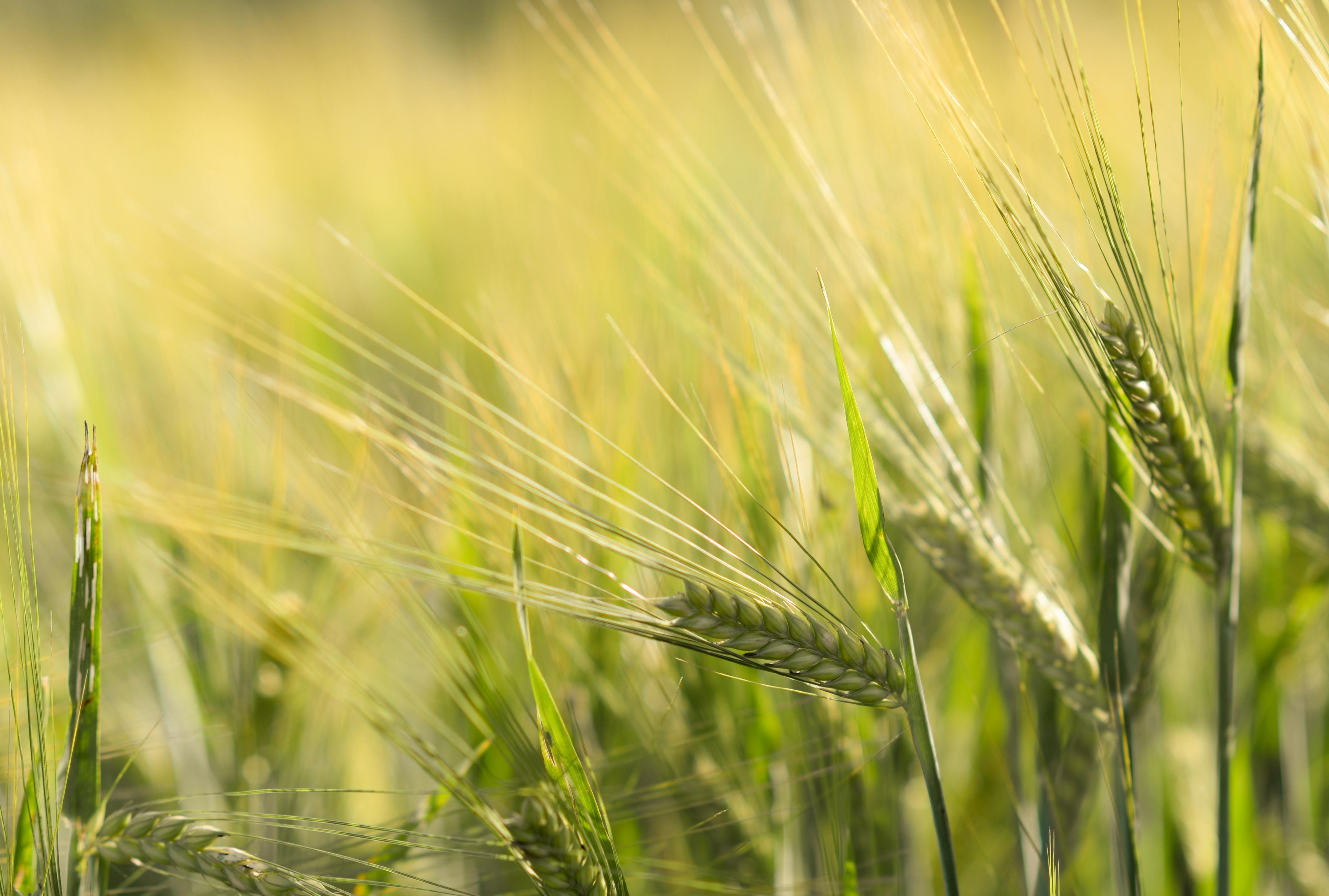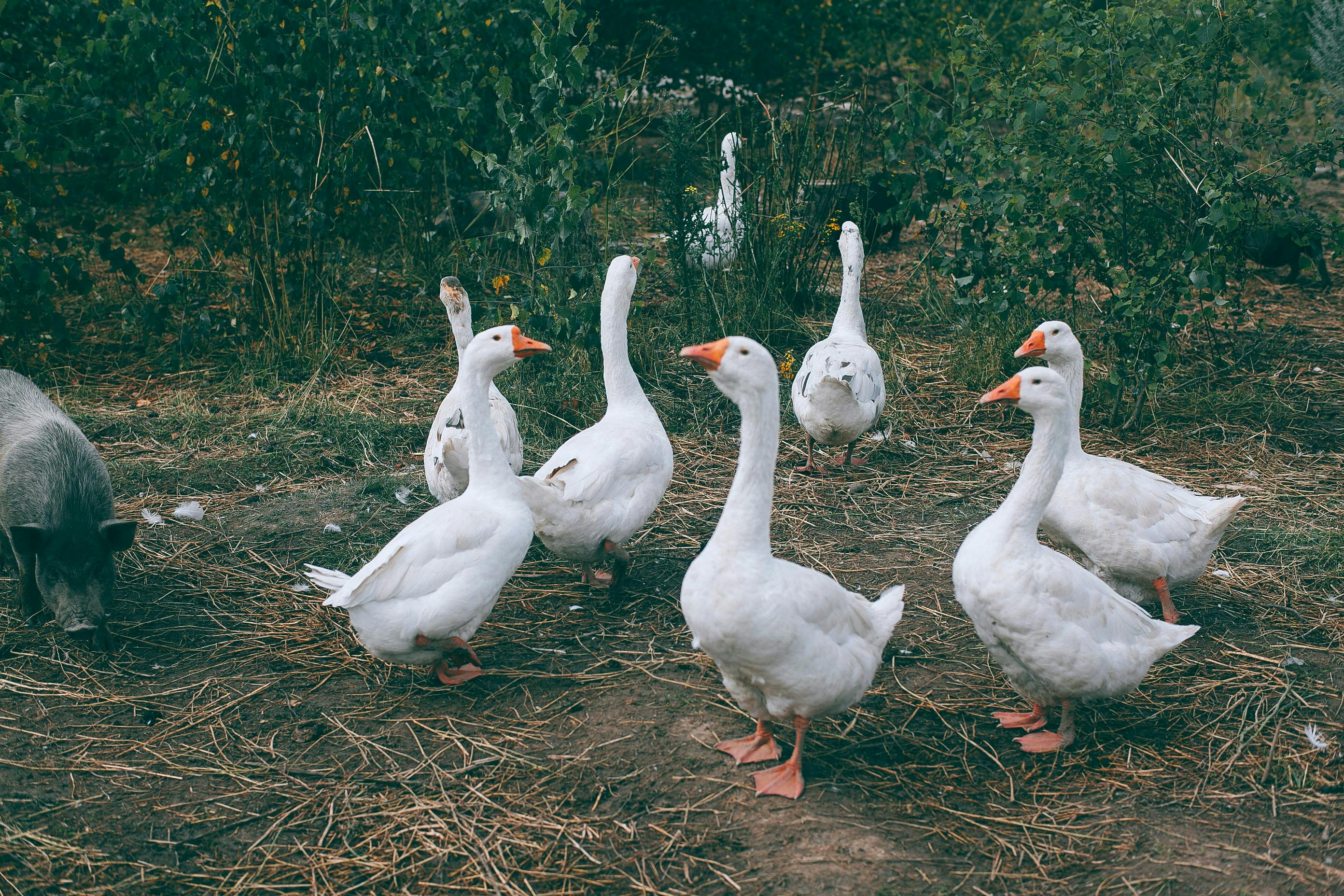When considering what plants rabbits eat, it is important to remember that rabbits are herbivores, meaning they only consume plant material. In the wild, rabbits will eat a variety of grasses and other vegetation. Domestic rabbits should also have a diet that contains mostly hay and grasses, in addition to fresh vegetables and leafy greens. In this article, we will discuss what plants rabbits can and should eat in order to stay healthy and happy.Rabbits are herbivores, so they eat a variety of vegetables. Common vegetables that rabbits can eat include carrots, celery, kale, cabbage, broccoli, spinach, parsley, bell peppers, and cucumbers. Other vegetables that rabbits may enjoy include sprouts, zucchini, squash, radishes, corn on the cob (without butter or salt), peas (in the pod or out), and sweet potatoes.
Fruits Rabbits Can Eat
Rabbits can eat a wide variety of fruits as part of their diet. Common fruits that are safe for rabbits include apples, bananas, grapes, melons, oranges, peaches, pears, plums, and strawberries. When introducing new fruits to your rabbit’s diet it is important to start slowly and in small amounts. This will help your rabbit get used to the new food without causing any digestive upset. Additionally, it is important to only provide fresh fruit that has been washed thoroughly and is free from any pesticides or other chemicals.
It is also important to note that fruit should only make up a small portion of your rabbit’s diet. Fruits are high in sugar which can lead to weight gain and digestive issues if fed too frequently or in large amounts. As a general rule of thumb, only provide 1-2 tablespoons of fresh fruit per 2-3 pounds of body weight per day.
When feeding fruits to your rabbit it is important to remember that not all fruits are safe for them to consume. Fruits such as avocados, lemons, limes, pineapples and tomatoes should never be given to rabbits due to the potential risk of toxicity or digestive upset. Additionally, it is important to avoid giving dried fruits or canned fruits as these can be high in sugar and preservatives which can cause digestive issues for rabbits.
In conclusion, while rabbits can eat a wide variety of fresh fruits it is important not to overfeed them as this can lead to health issues. It is also important to make sure any fruit given has been washed thoroughly and free from pesticides or other chemicals before feeding it your pet rabbit. Lastly, some fruits such as avocados should never be given due the potential risk of toxicity or digestive upset they may cause in rabbits.
What Types of Hay Should Rabbits Eat?
Hay is essential for a rabbit’s diet, and selecting the right type of hay is very important. The best type of hay for rabbits is Timothy hay, which has a high fiber content and helps to keep the rabbit’s digestive system healthy. It is also important to provide your rabbit with a variety of other types of hay, such as grass hays like meadow, oat, orchard, and brome hay. These hays are lower in fiber than Timothy hay and provide a valuable source of vitamins and minerals.
When selecting hay for your rabbit, it is important to choose fresh, dust-free hay that has no mold or mildew on it. You should also avoid feeding your rabbit any type of legume or clover hay as these can be difficult for them to digest. If you are unsure what type of hay to choose for your rabbit, consult with your vet or another expert for advice.
Also make sure that you give your bunny plenty of fresh water every day as this will help keep them hydrated and prevent them from becoming dehydrated. Finally, be sure to give your bunny some occasional treats like fresh vegetables or small pieces of fruit to help balance out their diet and keep them happy and healthy!
What Herbs Can Rabbits Eat?
Rabbits can eat a variety of fresh herbs, including mint, parsley, basil, oregano, rosemary and thyme. These herbs can provide essential vitamins and minerals that rabbits need to stay healthy. Additionally, these herbs can help add flavor to a rabbit’s diet and make food more enjoyable for them. All the herbs mentioned are safe for rabbits in moderation. However, it is important to keep in mind that overfeeding any type of herb may cause gastrointestinal upset in rabbits.
It is also important to note that some plants may be toxic to rabbits, so it is important to research any plant before feeding it to your rabbit. To give your rabbit fresh herbs safely, pick only organically grown plants from an area free of pesticides or herbicides. You should also wash the herbs thoroughly before feeding them to your rabbit.
Herbs can be fed as treats or added into a salad mix. Some rabbits may prefer their herbs finely chopped while others may enjoy eating them whole. You can also dry or freeze-dry herbs and use them as treats as well. Herbs are a great way to add variety into a rabbit’s diet and provide essential nutrients needed for overall health and wellbeing.
Are Carrots Good for Rabbits?
Carrots are one of the most popular vegetables for rabbits. They are an excellent source of vitamin A and provide essential nutrients that help rabbits stay healthy. Carrots also add variety to a rabbit’s diet, which can help keep them interested in their food. However, carrots should not be the only food that rabbits eat, as their diet should be balanced and include other types of vegetables as well.
Carrots can be fed to rabbits in a variety of ways. Whole carrots can be given to them, or they can be cut into smaller pieces for easier chewing. Fresh carrots are always preferable over canned or processed varieties, as these may contain additives or preservatives that could potentially harm your rabbit. Carrots should also be washed thoroughly before feeding them to your rabbit.
When feeding carrots to your rabbit, it is important to remember that they should not make up more than 10-15% of their daily food intake. Too much carrot can lead to digestive issues and other health problems. Additionally, too many carrots can lead to obesity and other weight-related issues in rabbits. As with any type of food, moderation is key when feeding carrots to your rabbit.
Overall, carrots are an excellent addition to a healthy diet for rabbits. They provide essential vitamins and minerals and add variety and flavor to their meals. However, it is important not to feed too many carrots as this could lead to nutritional deficiencies or weight gain in your rabbit.

Are Apples Good for Rabbits?
Rabbits are herbivores, meaning that they primarily eat plant-based foods. Apples can be a healthy treat for rabbits if given in moderation. Apples are a good source of vitamins A and C, as well as fiber, which is beneficial for rabbits’ digestive health. However, apples should not make up more than 10 percent of a rabbit’s diet since they contain a high sugar content.
It is important to remove the seeds and core before feeding apples to your rabbit since the seeds contain cyanide which can be harmful if ingested. Additionally, when introducing any new food into your rabbit’s diet, do so gradually and in small amounts to avoid upsetting their stomachs.
When feeding apples to your rabbit, it is best to provide them with organic apples that have not been sprayed with pesticides or other chemicals that could be harmful if ingested. Additionally, wash the apple thoroughly before feeding it to your rabbit to ensure any dirt or residue from handling has been removed.
Overall, while apples can be a healthy treat for rabbits when given in moderation and no more than 10 percent of their diet, ensure that you properly prepare them before offering them as part of their daily meals or snacks.
Can Rabbits Eat Spinach and Kale?
Yes, rabbits can eat both spinach and kale. Both of these vegetables are considered high in nutrients and provide many health benefits for rabbits. Spinach is rich in vitamins, minerals, and fiber, while kale is an excellent source of vitamins A and C, as well as calcium. Both vegetables are also low in fat and sugar, making them an ideal choice for rabbits.
When feeding your rabbit spinach or kale, it’s important to introduce these foods gradually into their diet. Start by offering small amounts of each vegetable at first and increase the amount over time until your rabbit is eating a balanced diet. It’s also important to monitor your rabbit’s reaction to the new food as some rabbits may have adverse reactions to these vegetables.
In addition to adding spinach and kale to your rabbit’s diet, it’s also important to provide them with a variety of other fresh vegetables such as carrots, broccoli, celery, cabbage, bell peppers, and squash. These vegetables are all high in vitamins and minerals and provide your rabbit with essential nutrition they need for optimal health.
Overall, both spinach and kale can be a healthy addition to your rabbit’s diet when fed in moderation. Be sure to introduce these foods gradually into their diet and monitor their reaction carefully so you can ensure they’re getting all the nutrition they need for a long and happy life!
Can Rabbits Eat Cabbage and Broccoli?
Yes, rabbits can eat cabbage and broccoli. These vegetables are not only safe for them to consume, but they are also a great source of essential vitamins and minerals. Cabbage and broccoli provide rabbits with dietary fiber, vitamins A, C and K, calcium, magnesium, potassium, and iron. They are also a great source of antioxidants which can help to protect the rabbit’s body from damage caused by free radicals.
When feeding rabbits cabbage or broccoli it is important to provide them in small pieces as large pieces may be difficult for them to digest. It is also important to make sure that they are fresh as spoiled vegetables may cause digestive upset in rabbits. Offer your rabbit cabbage or broccoli at least once a week as part of a balanced diet. Remember to always introduce new foods slowly and monitor your rabbit’s reaction before offering more of the food in question.
It is important to note that while cabbage and broccoli are safe for rabbits to eat they should be offered as occasional treats only as part of a balanced diet. Too much may cause digestive problems or obesity in some cases, so it’s best to speak with your vet about how much of each vegetable you should offer your rabbit on a weekly basis.

Conclusion
Rabbits are herbivores, so they only eat plants. While hay and fresh vegetables should form the bulk of their diet, adding in other fresh plant-based foods, such as grasses, herbs, flowers, and tree bark can provide variety. Additionally, rabbits can also benefit from certain safe human foods such as oats and whole grains. It is important for rabbit owners to know what plants to feed their rabbits to help keep them healthy. Over-feeding of unhealthy foods can lead to obesity and other health problems.
Overall, rabbits can enjoy a wide variety of safe plant-based food items in addition to hay and fresh vegetables. Leafy greens like lettuce and spinach should be offered in moderation due to their high water content while other plant-based items such as carrots and apples should be offered sparingly as treats. Providing variety in the diet is key for helping keep rabbits healthy and happy.
It’s always best to consult a veterinarian or experienced rabbit owner before making changes to your rabbit’s diet. This will help ensure that your rabbit is receiving all of the nutrients it needs for a long and healthy life.

